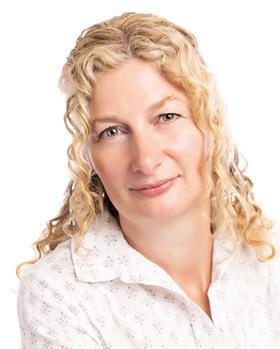Everyone knows that feeling of having a problem playing on your mind. It nags and niggles at you, and you can’t quite put it out of your head. It interrupts your concentration and interferes with both work and home life.

Many people involved in legal disputes experience precisely this kind of stress. Until the dispute is resolved, it is ever present in their thoughts; and the more protracted it is, the worse it gets. This is pretty obvious, but it is rarely given much thought. So it was refreshing to hear master of the rolls Sir Geoffrey Vos drawing attention to the issue last month, in a speech on digital justice at Greenwich University.
‘As I see it, dispute is costly,’ he said. ‘That is not just because lawyers are expensive and courts take time to resolve disputes. It is because of the stress caused by unresolved disputes that people are unproductive at work and in their personal lives. It has always proved hard to put a reliable figure on the cost of unresolved disputes. But the estimates that have been made show that resolving civil family and tribunals disputes more quickly and efficiently would save billions.
‘You must all have seen people preoccupied when a problem has arisen in their home life, taking their attention away from their work – whether that is in shops, offices or on building sites. If they could only find their way more quickly to the right dispute resolution platform, much of that economic drag would be ameliorated.
‘Unresolved civil dispute also causes health problems that take people into the health service with depression and other psychological stress. Again, that leads to the double whammy of lack of productivity and additional pressure on public services.’

Read more by Rachel Rothwell
For Vos, the answer to all this lies in the creation of the digital justice system. That term has been very much misunderstood, however. It is not about splashing cash on some fancy new IT kit. All the different parts of the engine already exist, but they are scattered about. What is needed is the ‘mechanic’ to connect them and fit them together; and that role will be played by the Online Procedure Rule Committee (OPRC).
Vos pointed to all the provisions for pre-action dispute resolution that are already available: ombuds portals in numerous sectors, mostly financed by industry or financial organisations; mediation portals and arbitration portals; the Official Injury Portal dealing with ‘hundreds of thousands of personal injury claims’ each year; and online legal advice platforms such as Advicenow, ACAS and Citizens Advice. The problem, Vos says, is that these provisions are not properly connected in a way that allows individuals to find the right advice and the right dispute resolution mechanism quickly and efficiently.
Research by the Ministry of Justice and the OPRC shows that the ‘biggest difficulty’ for most people is ‘navigating’ the online space to find the most suitable means of resolving their problems. This is the issue that the OPRC will seek to fix.
All this sounds very convincing. However, it relies on the various existing resolution mechanisms being up to scratch. I would certainly question whether the Official Injury Portal in particular should really be held up as a shining example: as the Gazette reported earlier this year, claims in the portal are now routinely taking more than a year to settle. If the digital justice system is largely about connecting people with the diverse dispute resolution processes that we already have, then clearly these need to be fit for purpose.
Meanwhile, Vos also highlighted how artificial intelligence will have a key role to play in helping to diagnose what someone’s legal problem is, and then send them off in the right direction to get it resolved. The MR noted that AI is already capable of providing ‘reasonably accurate’ legal advice in employment, property and other issues. But while this might be ‘scary’ for lawyers, they are not about to be replaced, as this advice still needs to be explained to the client. ‘Persuading people to accept legal advice is a peculiarly human activity,’ he observed.
Rachel Rothwell is editor of Gazette sister magazine Litigation Funding, the essential guide to finance and costs.
For subscription details, tel: 020 8049 3890, or click here.































No comments yet